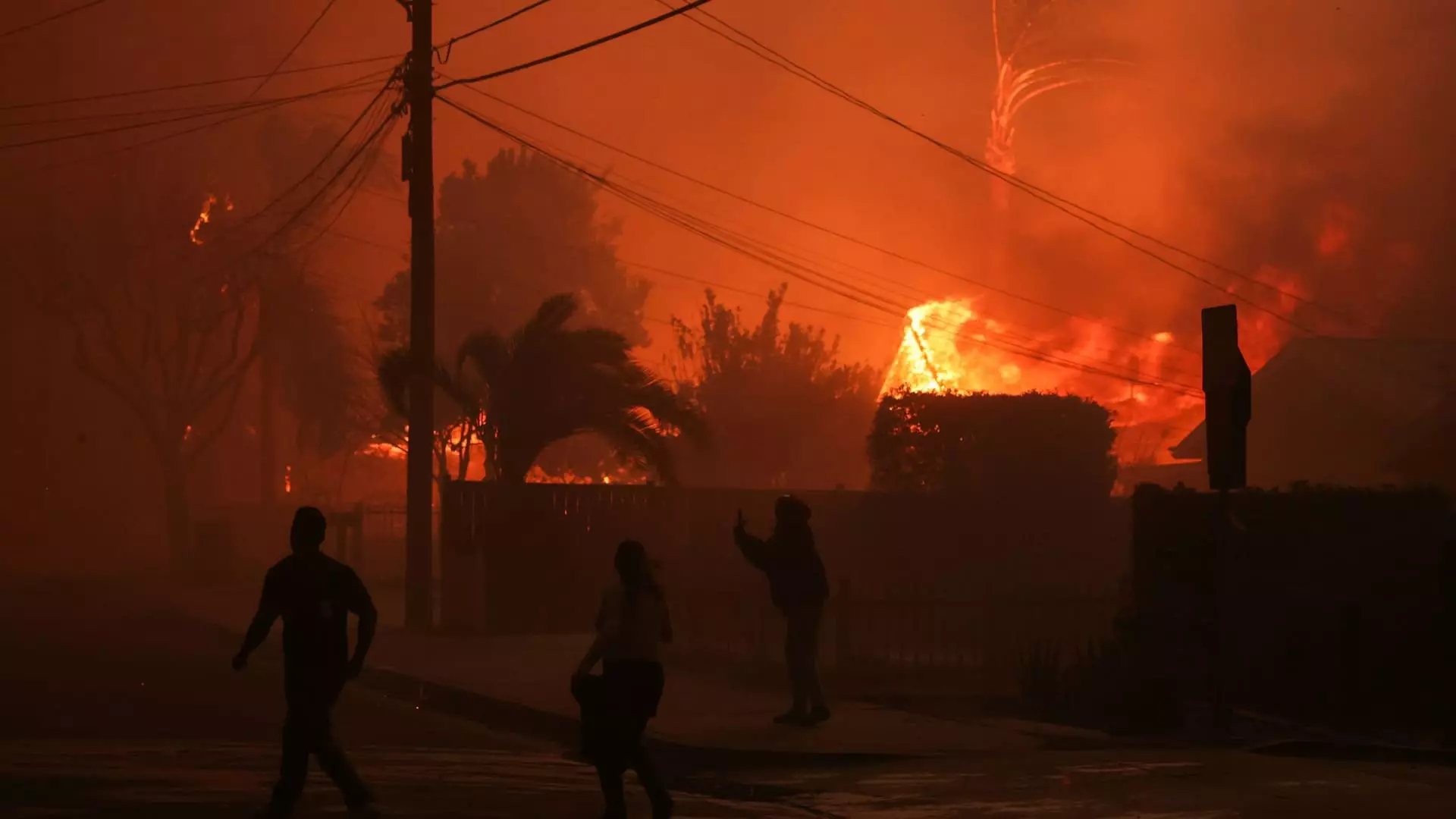Recent wildfires blazing through California have triggered an unsettling atmosphere for investors, particularly affecting Edison International and its subsidiary, Southern California Edison. As reports of raging fires in the vicinity of Los Angeles pour in, the company’s stock has experienced a drastic 13% decline in just a single afternoon of trading. This swift downward trajectory serves as a stark reminder of the volatile relationship between environmental catastrophes and market performance, especially for companies involved in utilities that face uncertain regulatory and financial repercussions.
Evacuations and Power Outages: The Human Cost
The impact of the wildfires is not solely financial; it is multifaceted and includes dire human consequences. Tens of thousands of residents have been ordered to evacuate their homes, and tragically, at least two lives have been lost. In addition to the emotional turmoil endured by the affected communities, the fires have led to significant disruptions in power distribution, with approximately 70,000 Edison customers experiencing outages as reported earlier this week. Such circumstances elucidate the heavy feelings of fear and vulnerability that continue to shadow both the local population and investors alike.
Historical Context: Wildfire Liability and Its Financial Ramifications
The historical context of California’s wildfire issues cannot be overlooked, as precedents have shown the devastating financial ramifications for utility companies. The infamous case of Pacific Gas and Electric Company, which filed for bankruptcy in 2019, looms large over current market sentiments. This past experience has understandably made investors jittery, yet a glimmer of hope may rest in California’s AB 1054 legislation, enacted in 2020 to curb the financial liabilities of utilities in the face of wildfire-related disasters.
While the current sentiment appears bleak, the potential impact of AB 1054 also introduces an element of cautious optimism. Analysts from firms such as Jefferies have remarked that the legislation offers important liability protections, which may cushion utilities against the financial fallout associated with wildfires. However, the underlying anxiety remains palpable. The prevailing attitude among investors is one of “sell first, ask questions later,” especially when substantial wildfire activity continues without clear containment prospects.
Edison isn’t the only utility company feeling the heat from current events. Other players in the California utility sector also saw declines, including a 4% drop in shares of PG&E and a 3% dip in Sempra’s stock. This collective downturn highlights a systemic issue at play in the region’s utility market. Sempra’s decision to proactively shut off power to approximately 7,000 customers exemplifies the preemptive measures that companies are willing to take in an attempt to mitigate fire risks, yet such steps also contribute to their precarious financial standing and investor uncertainty.
The ongoing wildfires in California present a unique set of challenges for utility companies like Edison International, exposing them to both immediate financial strain and long-term reputational risks. As conditions shift rapidly and uncertainties abound, stakeholders must navigate these tumultuous waters, weighing historic liabilities against newfound legislative protections. The current moment serves as both a warning and an opportunity for utilities to rethink their approach to risk management and disaster preparedness in an ever-changing climate landscape.

